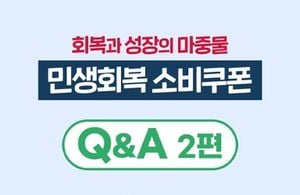As Vietnam prepares for the 2025 school year, significant adjustments in university admission policies are set to focus on making the process more accessible and equitable for students. On March 16, during a career counseling event at Hanoi University of Science and Technology, Deputy Minister of Education and Training Hoang Minh Son announced changes that aim to enhance both the high school graduation exam and the university admission procedures.
In line with the new general education program, the high school graduation exam slated for 2025 will see changes in the way questions are formulated. Rather than merely testing students' rote memorization skills, the new approach will assess their overall abilities. According to Son, this shift will not only help in better identifying candidate strengths but also alleviate the intense pressure students face during exam preparations.
In addition to the exam reform, the Ministry of Education and Training is set to release new enrollment regulations that incorporate technology to streamline the admissions process. By minimizing bureaucratic procedures and reducing the possibility of errors, these adjustments promise to optimize students’ chances for success. “The changes in enrollment regulations are mainly technical,” said Deputy Minister Son, emphasizing that students should focus on studying rather than getting bogged down by the details of the technical adjustments.
This year will also see a significant shift in how admissions are handled, moving away from the previously multiple admissions phases to a single, consolidated admission period. “Organizing only one admission period will help reduce stress on students and avoid the complications of having to submit applications to numerous schools,” Son stated. Furthermore, this streamlined process aims to ensure a fair and transparent admissions process for all candidates.
For the high school graduation exam, Mr. Nguyen Ngoc Ha, Deputy Director of the Department of Quality Management, mentioned that the exam will focus mainly on the content from the 12th-grade curriculum while also incorporating elements from the 10th and 11th grades. Ha highlighted that candidates could expect the exam's content to be closely aligned with their high school education, which should help in easing the preparation burden.
A notable aspect being woven into this year's admission process is the increased importance placed on students' overall academic performance throughout the year rather than just their first-semester scores. For those utilizing high school transcripts for admission, all results from the 12th-grade academic year will now be factored in, thus encouraging students to maintain consistent performance throughout their studies.
In another significant update, the Ministry will not limit admission combinations. This means institutions can propose new combinations of subjects that align with emerging trends and market demands, ensuring a broader range of opportunities for students. With this flexibility, students will have the chance to rank an unlimited number of preference options during the admissions period based on their interests and abilities.
In addressing student concerns regarding early admissions, Mr. Nguyen Anh Dung, Deputy Director of the Department of Higher Education, confirmed that early admissions would be entirely removed. Instead, only specific direct admissions in line with the Ministry's directives will be retained, allowing all candidates to compete on equal footing.
Dr. Nguyen Thi Cuc Phuong, Vice Rector of Hanoi University, shed light on the changing landscape in foreign language education. With growing demand for language proficiency coupled with specialized knowledge, graduates are finding opportunities in fields such as tourism, communications, and within international companies. “The rarer the foreign language, the higher the job opportunity,” she noted, emphasizing the evolving nature of workplace skills.
Looking ahead to future job markets, the Ministry of Education and Training is keen on aligning educational outcomes with the needs of the workforce. As industries increasingly seek employees with both technical skills and the ability to discern and adapt to new technologies, universities are being encouraged to integrate advanced technologies into their curriculums.
While these changes bring optimism, the path forward requires careful consideration from students. As they prepare for the upcoming admissions period, it is essential for candidates to reflect on their personal interests and assess the opportunities available in various fields. “Students should focus on their strengths and passions rather than solely chasing trends,” added Deputy Minister Dung, fostering a mindset of proactive career planning.
Overall, the amendments aimed at ensuring transparency and fairness during the 2025 high school graduation exam and university admissions are welcome news for both students and educators alike. With its focus on enhancing overall student experience and preparation, the Ministry of Education and Training appears dedicated to fostering a more empowered generation ready to face the challenges of modern society.





